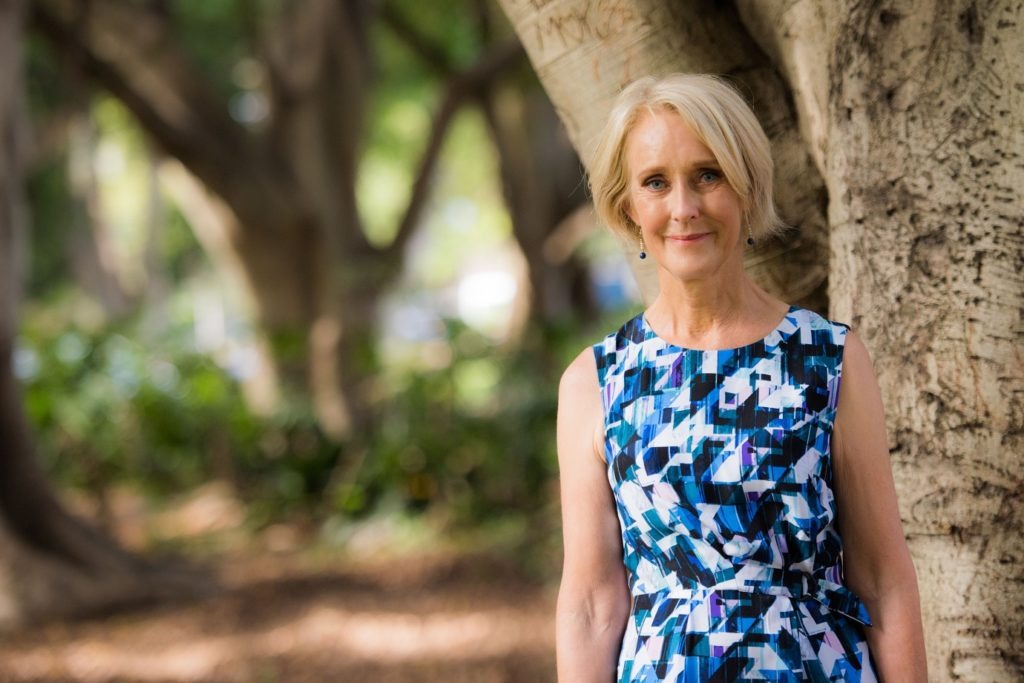Dr Jenny Brockis appeared to have it all, running a busy medical practice with two young children.
But when she hit burnout, it hit hard. She found herself dreading the drive to work, locking herself in her office hoping to avoid people. One afternoon she collapsed, and went home for the weekend determined to take an extra day off. The long weekend turned into a year-long recovery.
“It was a terrible time, but it was also the wake up call I needed that really made me realise that I’d actually brought much of it on myself,” she says.
It’s a story Jenny can now tell with confidence, and in many ways as a cautionary tale to others. She’s just published her latest book Thriving Mind: How To Cultivate A Good life, following her previously successful books focusing on the brain.
The burnout was initially hard to accept and hard to recognise. Jenny put in almost a decade of study for her career, having transitioned from nursing to medicine when she was back in the United Kingdom. She was passionate about her work and the business she’d created.
But passion, hard work and achievement doesn’t inoculate you against burnout.
Today, Jenny lives differently. She takes time out for herself. She takes walks, does mindfulness meditation which she says has given her a newer, calmer approach. And she watches for the warning signs of burnout, just as she always looked for in her patients.
Still, she concedes she’s a workaholic.
“I freely admit I’m a workaholic,” she says.
“I love my job and my work and it’s great to have that passion but it’s about keeping it in check, so it doesn’t become the be all and end all. We are not on this planet to simply just work. If we have a sense of purpose that’s great, and for the good of the planet that’s wonderful, but not at the expense of ourselves.”
Asked to describe a workaholic, she says it happens when you lose the sense of boundaries between where work ends and the rest of your life starts. It’s believing you can’t take time out. It’s making excuses to not see family and friends, and it’s missing appointments and forgetting to look after your physical self. “It’s those little warning signs where work has become all encompassing,” adds Jenny, “and we justify why we don’t do other things.”
The Brown Out Zone
Crossing the line into workaholic territory is a little easier these days, with screens enabling many of us to be ‘always present’ and connected with work.
The current shift to working from home may have improved things for some people, but could have made it even worse for others, with the loss of more physical boundaries and the barriers that commuting can enable.
But it’s not all about work. When it comes to burnout, there are many aspects of your life that can contribute – and it could be the sum of all of these that ultimately make it happen.
Jenny believes women particularly are at risk of falling into and getting trapped in what she refers to as the “Brown Out Zone” – it’s not quite burnout, but it’s overwork, exhaustion and it’s persistent.
“It’s when you constantly have to do this and this and it becomes a perpetual running loop” she says.
The added stress of COVID-19 in 2020 has made this perpetual running loop even more difficult to maintain for many people, adds Jenny. Especially with the layer of stress and anxiety bubbling under the surface that comes with the mental load of trying to keep different people happy, and attempting to work and do what you were doing during pre-pandemic times.
Her key message if this is you? Cut yourself some slack. Show yourself some compassion and understand that it’s unreasonable to expect anyone to perform at the same level they were at pre COVID, if they have had to take on additional tasks and stress.
“Let’s reflect on how we want to manage things better as we come out of this time,” she says.

“What can we do less of that’s going to make life not just more manageable, but more enjoyable? And bring in more fun into what we do on a daily basis?
The brown out zone, she adds, is particularly problematic for those on the frontline. Nurses, doctors, retail workers, those who’ve been going above and beyond to help and serve others during this period, that may have done so without taking a break in months. And it’s tough on those parents and carers who have taken on additional caring responsibilities – including remote learning during this period, in many cases while attempting to continue with paid work.
Jenny says we may not discover the extent of the level of distress and stress some of these people have been feeling until after the pandemic.
In the meantime, we can all help each other by giving support and showing gratitude.
On happiness at work, Jenny recently listed 13 elements that she believes are essential: Breaks, choice, compassion, exercise, gratitude, green and blue space, kindness, mindfulness, positive relationships, psychological safety, reward & recognition, sense of purpose & meaning and the final one, sleep.
That psychological safety at work piece is particularly important, but too often overlooked. She says it’s when you’re given permission to experiment and fail, have the confidence to speak up when something doesn’t feel right, and feel good when you voice an opinion, among other things.
Jenny’s book is a practical guide to move into ‘thriving’, offering everything from tips on diet to sleep, exercise, meditation and when and how to drink coffee. She shares more on what’s covered in The Women’s Agenda Podcast. Listen below or subscribe via iTunes.
Thriving Mind is published by Wiley. Buy it here.


